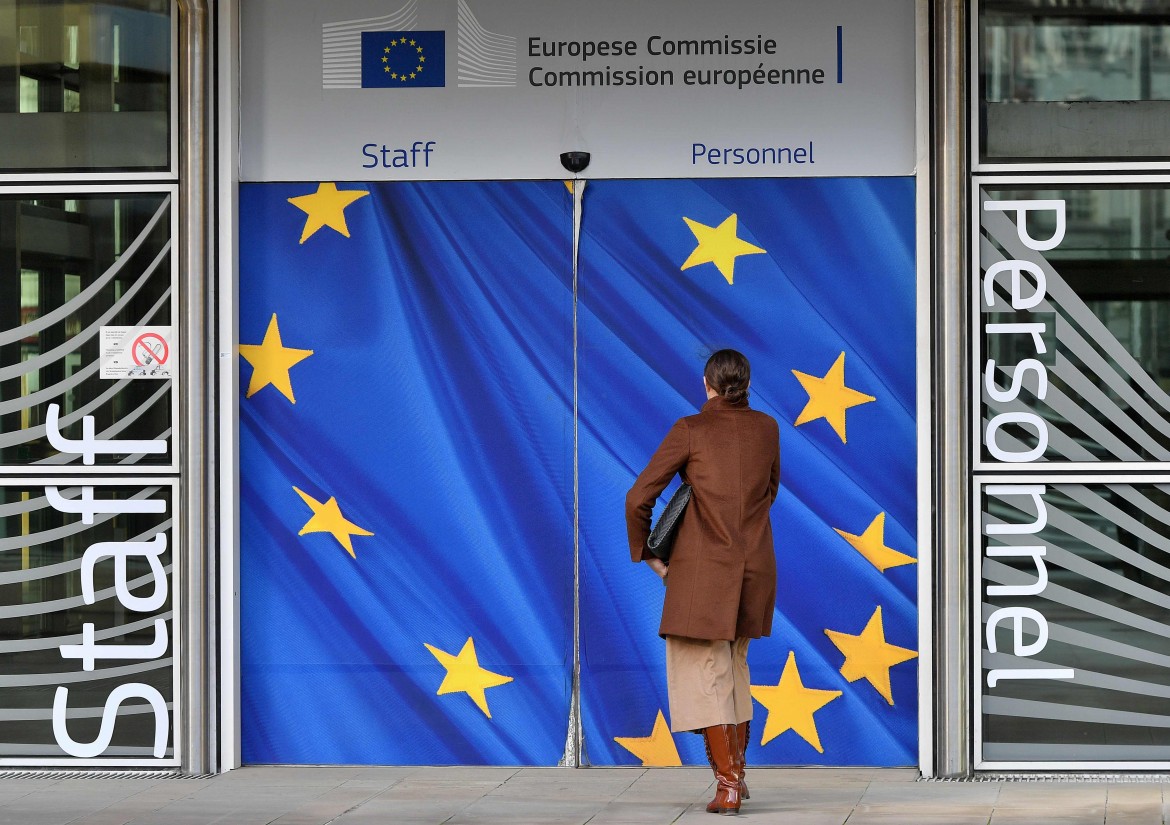Commentary
London bites the bullet: yes to the EU’s Brexit demands
For St. Theresa of Brexit, this is just the first of her personal Stations of the Cross, after she has shown plenty of ability in managing lengthy negotiations with herself.

We have reached the end of the beginning. Theresa May was holed up for five hours on Wednesday with the rest of her ministers in Downing Street to discuss the over 500-page draft agreement with Brussels on the future relationship between the EU and Britain, after the latter is set to exit on March 29. She emerged with the support of her cabinet.
For St. Theresa of Brexit, this is just the first of her personal Stations of the Cross, after she has shown plenty of ability in managing lengthy negotiations herself. The draft will now face the House of Commons, where it has gotten a largely hostile reception so far, where May doesn’t command a majority, and where the Labour Party is highly critical of the deal and would love nothing more than another snap election. Various scenarios are still possible: a “hard” no-deal Brexit, another referendum, an extension of the Article 50 deadline, or, indeed, early elections.
The emergency Cabinet meeting, which started Wednesday at 2 p.m. on what many were calling “Judgment Day,” was the most important such meeting for both May’s career and that of her government—which is made up of mostly grifters and opportunists from the bottom of the Conservative barrel. The cabinet meeting had one fundamental goal: to force the ministers, some of them die hard Eurosceptics, to properly process the epic draft deal that was finally drawn up with Brussels 875 days after Day Zero, June 23, 2016, when the country decided to quit the band (an EU that seemed to be in a creative slump) and start a solo career.
The draft agreement is tilted in favor of the side holding the upper hand: the EU. As the harsh reality of the disproportional negotiating positions of the two parties became clearer and clearer (and the specter of the economic catastrophe of a no-deal Brexit loomed closer and closer), May’s previous bold, Dunkirk-style utterances (“No deal is better than a bad deal,” she had thundered a few months ago) have become more humble and meek.
Her “Chequers plan,” which had finally rid her of the notorious clown Boris Johnson, was rejected by the EU. The conditions the EU ended up imposing in the current draft have raised an outcry from all the proud Brexit warriors, such as the aforementioned Johnson, Jacob Rees-Mogg, David Davis, and the true kingmakers for May, the few members of Parliament from Northern Ireland’s Democratic Unionist Party (DUP)—particularly on the crucial question of the border between the two Irelands, an issue that had hardly gotten any mention at all during the Brexit referendum campaign.
The Brexiters are boiling with rage. The crucial issue is the Gordian knot of the Irish question. At the moment, goods are travelling between Ireland and Northern Ireland without any custom checks, since both are still part of the EU. Once the UK is out, the leaders in Brussels—and in Dublin most of all—don’t want the return of a physical border that would undermine the peace achieved with the Good Friday Agreement of 1998. The solution would be, according to the draft agreement, a “common regulatory area” in Ireland, an arrangement proposed by the European Union that would essentially keep both Irelands inside the EU until the final structure of the relationship between the EU and the UK is determined.
This last-ditch solution, or “backstop,” might not enter into effect at all, but has nonetheless infuriated the DUP, which sees it as a threat to the integrity of the United Kingdom, which would end up divided by a border across the Irish Sea (or, even worse, as a Trojan horse for the reunification of Ireland). It has also angered the Eurosceptics, who see it as a form of humiliating vassalage for the former imperial power. It is also disliked, of course, by the bipartisan Remainers, who, although they fear the economic consequences of a “hard” Brexit, desperately want a second referendum (which they will not get unless May’s government falls), or a final “people’s vote” on the agreement finalized by the government.
It is ironic that the island that gave birth to Shakespeare has now provided the stage for the greatest continent-wide spectacle concerning the most delicate issue in its post-1945 history—with a performance that fits squarely within the absurdist genre. As the months passed, the Brexit tragicomedy seemed more and more the result of a joint artistic effort by Ionesco and Beckett (not without the help of those great Habsburg figures, Kafka and Musil). It is an indigestible cocktail of bureaucracy on steroids mixed with national-religious fundamentalism, 18th-century mercantilism and neoliberalism in its death throes, from which almost no one can understand anything anymore—not only the regular citizens, who will be the more or less willing victims of the debacle, but also the commentators and politicians, overwhelmed and desperately spinning their wheels, displaying their all-too-human intellectual limitations in the most unflattering way imaginable.
May is perhaps the last of a dying breed of 20th-century political figures that at least think they believe in the good of their country rather than that of their schizophrenic party. She seized the opportunity to become Prime Minister, a role that would have hardly been within reach for her if the historical conditions had been any less surreal. For now, at least, her stubborn defiance—while most others in her position would have resigned a long time ago for the sake of their sanity—seems more heroic than pathetic. Next station: the House of Commons.
Originally published at https://ilmanifesto.it/londra-ingoia-il-rospo-si-alla-bozza-della-ue-sulla-brexit/ on 2018-11-15
